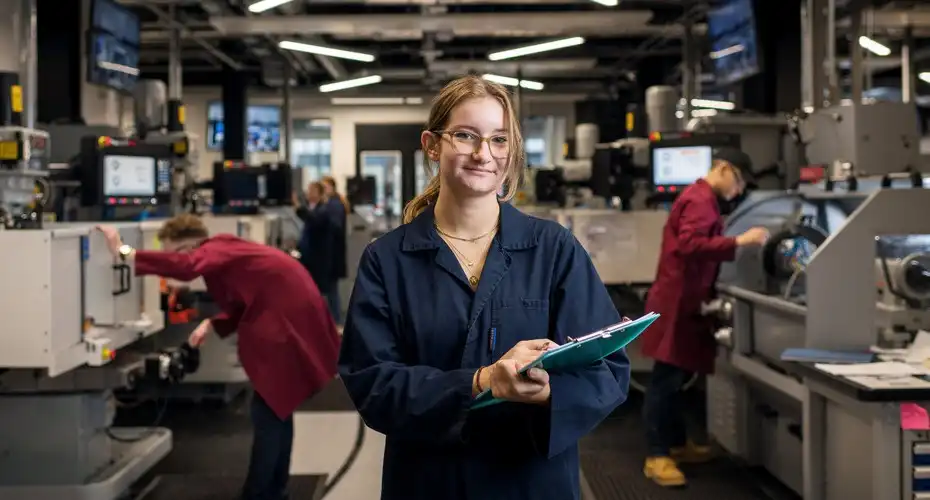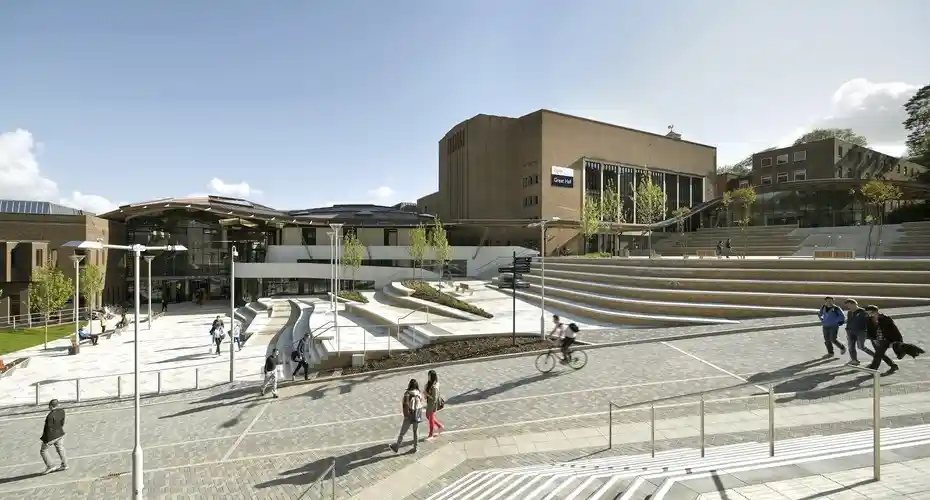| Degrees |
|
|---|---|
| Duration |
| Start date | September, January or April |
|---|---|
| Location | Streatham Campus |
| Study modes | Full time and part time |
Overview
Art History and Visual Culture at Exeter is a renowned hub of research, practice, and teaching, offering a supportive and stimulating environment for postgraduate research that attracts students from all over the world.
Our interdisciplinary ethos fosters scholarly inquiry and practice-based investigation, supported by established connections beyond the University with prominent national and international museums, galleries, and research institutions.
We currently offer two PhD programmes:
MPhil/PhD Art History and Visual Culture
- This programme enables students to undertake a substantial research project within the field of art history and visual culture, aligned with the scholarly expertise of staff in the department.
- Research specialisms encompass a wide range of periods and methodological approaches, from the Renaissance period to the present day.
- The programme culminates in the submission of a comprehensive written thesis, typically between 80,000 and 100,000 words in length.
MPhil/PhD Art History and Visual Culture by Practice
- This programme is designed for candidates who seek to integrate technical, practical, and creative skills within advanced cultural, aesthetic, and critical contexts.
- Candidates are required to produce a substantial portfolio of practice, which may encompass artistic production, curatorial initiatives, community-engaged research, or digital heritage projects.
- The practical component is accompanied by a critical analytical commentary, approximately 40,000 words in length, that articulates and interrogates the research objectives of the chosen practice.
Emma talks about studying for a PhD in Art History & Visual Culture by Practice.
Contact
Web: Enquire online
Phone: 0300 555 6060 (UK)
+44 (0)1392 723044 (non-UK)
![]()
Top 15 for History of Art, Architecture and Design
The Complete University Guide 2023
![]()
Internationally recognised fine art, heritage and film collections on site, including the Bill Douglas Cinema Museum
![]()
World-leading research and teaching team
![]()
Top 15 for History of Art, Architecture and Design
The Complete University Guide 2023
![]()
Internationally recognised fine art, heritage and film collections on site, including the Bill Douglas Cinema Museum
![]()
World-leading research and teaching team
Research overview
Our research in Art History and Visual Culture is interdisciplinary in scope. Our staff publish on the history of art, craft, design, and cultural studies.
They curate exhibitions, work with a variety of internationally renowned arts and culture institutions, and lead major externally-funded research projects on topics as diverse as:
- curatorial engagements with performance archives;
- the history of Netherlandish art;
- Renaissance architecture and public spaces;
- exhibitions and colonialism;
- visual cultures of health and illness;
- and feminist, queer and transgender contemporary art.
Explore our research, including our research projects, to find out more about our current research topics.
Visit our staff profiles for details on the research interests and publications of individual staff.
How to apply
Entry requirements
Students applying to enter directly into the MPhil/PhD programme would normally be expected to have a Masters degree with Merit or equivalent in a related subject, or other relevant qualifications such as a doctorate in another subject.
If you are an international student, please visit our international equivalency pages to enable you to see if your existing academic qualifications meet our entry requirements.
Applying for MPhil/PhD study
You may wish to read our general advice for PhD applicants, which give tips on how to put together a successful research degree application.
Applicants for research programmes are also advised to visit the Department's webpages to check for specific advice. Here you will be able to find out about staff research interests and make preliminary enquiries about supervision. We advise that you do this before applying.
Requirements for international students
If you are an international student, please visit our international equivalency pages to enable you to see if your existing academic qualifications meet our entry requirements.
English language requirements
International students need to show they have the required level of English language to study this course. The required test scores for this course fall under Profile E: view the required test scores and equivalencies from your country.
Fees and funding
Tuition fees per year 2025/26
- Home: £5,006 full-time; £pro-rata part-time
- International: £23,500 full-time
For those studying for more than one year, our fees are expected to increase modestly in line with Consumer Price Inflation measured in December each year. More information can be found on our Student Finance webpages.
Tuition fees per year 2024/25
- Home: £4,786 full-time; £pro-rata part-time
- International: £22,600 full-time
For those studying for more than one year, our fees are expected to increase modestly in line with Consumer Price Inflation measured in December each year. More information can be found on our Student Finance webpages.
Our Postgraduate Funding webpage provides links to further information. If you are considering a PhD in the future, in addition to University of Exeter funding, we have been successful at securing postgraduate funding for PhD research through our Funded centres.
Current available funding
Supervision
Supervisors - all students have a primary and a secondary supervisor who provide regular, high quality advice, support and direction in their academic endeavours. You will work closely with your supervisors over three to four years (full time PhD) or six to seven (part-time PhD) to develop, investigate and write-up a project at the cutting edge of theological research.
Visit our staff profiles for more information about individual research interests or use the search box on the right of this page to find a supervisor.
Mentor - each student will also be assigned a mentor who will take on a pastoral role and mediate on any problems that arise during the period of study. Your mentor will keep in regular contact and will provide background stability and support.
Careers
We are committed to ensuring you receive high quality research supervision to maximise your potential and prepare you for a rewarding career.
Postgraduate students have access to the wide range of support offered by our Career Zone. In addition, postgraduate research students can access our Postgraduate Researchers' Programme, which covers a range of topics to help you to succeed during your research degree and to act as a springboard for your research career.











